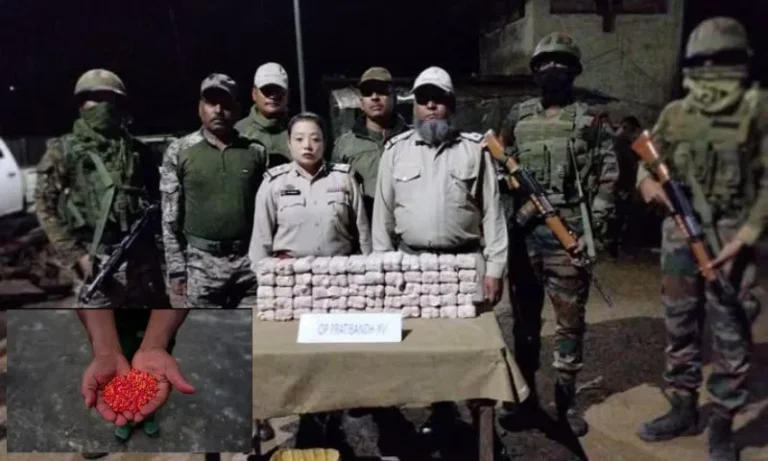Kangana Ranaut’s Legal Trouble: Chandigarh Court Issues Notice Over ‘Emergency’ Controversy
Summary of the News Article
A Chandigarh court has issued a legal notice to actress Kangana Ranaut regarding a defamation complaint linked to her upcoming film, Emergency. The case, initiated by Gaurav Gulati, accuses Ranaut of allegedly portraying former Prime Minister Indira Gandhi in a negative light. This is part of a larger pattern of legal challenges faced by Ranaut, who often courts controversy with her outspoken nature and political views.
Kangana Ranaut and the ‘Emergency’ Controversy: A Deep Dive into the Legal Battle
In the world of Bollywood, where cinema often intertwines with politics and societal issues, Kangana Ranaut remains a force to be reckoned with. Known for her bold performances and equally bold statements, she has always been a magnet for controversy. This time, however, the storm surrounds her upcoming film, Emergency, and the portrayal of India’s first female Prime Minister, Indira Gandhi.
Recently, Ranaut found herself at the center of legal trouble when a Chandigarh court issued her a notice over a defamation suit tied to the movie. The film, which explores the period of the Emergency in India during the 1970s, has already sparked intense debate and legal challenges, even before its release. Let’s dive into the details of this legal controversy and why it matters, not just for the actress but for Indian cinema and the political landscape.
The Plotline: What Is Emergency All About?
Before we get into the legal aspects, it’s essential to understand what Emergency is about. Directed and produced by Kangana herself, the film is a political drama that aims to shed light on the Emergency period in India, a 21-month span from 1975 to 1977, when the government led by Indira Gandhi declared a state of emergency across the country.
During this time, civil liberties were curtailed, political opponents were imprisoned, and press freedoms were restricted. While the movie seeks to depict the challenges and struggles faced by the country during this turbulent period, the way Indira Gandhi is portrayed has raised eyebrows.
1. A Controversial Figure in a Controversial Era
Indira Gandhi, India’s first female Prime Minister, remains a towering figure in Indian politics. Her decision to impose Emergency remains one of the most debated actions in Indian political history. Critics view it as a dark chapter that undermined democratic institutions, while her supporters argue it was a necessary move given the internal and external challenges facing the country at the time.
Kangana’s Emergency appears to take a critical stance on this period, focusing on the alleged human rights abuses and authoritarian tendencies of Gandhi’s government. But how far does the portrayal go? This question seems to be at the heart of the defamation lawsuit.
2. The Film’s Trailer and Initial Reactions
The trailer of Emergency, which was released recently, has already generated significant buzz. Kangana’s portrayal of Indira Gandhi, complete with prosthetics and a sharp dialogue delivery, has drawn both applause and criticism. However, it is not the artistic representation that has led to legal trouble, but rather the alleged defamation of the former Prime Minister’s image.
According to Gaurav Gulati, who filed the lawsuit, the film’s portrayal of Gandhi is not just a creative interpretation but an outright misrepresentation of facts that could harm her legacy. Gulati claims that the movie aims to depict the former PM in a negative light, which has spurred the legal action.
The Legal Angle: Defamation Suit Explained
Defamation in India is a serious legal issue, especially when it involves public figures. In this case, the defamation suit hinges on whether Emergency portrays Indira Gandhi in a way that defames her or damages her reputation posthumously.
1. What Is Defamation Under Indian Law?
In India, defamation is both a civil and criminal offense, governed under Sections 499 and 500 of the Indian Penal Code. Defamation occurs when someone makes a statement that could harm the reputation of an individual or group. When it comes to public figures like Indira Gandhi, the threshold for proving defamation is slightly higher, as the law also recognizes the importance of freedom of speech, especially in artistic expression.
However, if the portrayal in Emergency is found to be factually incorrect or intentionally harmful, Kangana could face legal consequences.
2. What Does the Notice Mean for Kangana?
The Chandigarh court’s notice doesn’t necessarily mean Kangana is guilty of defamation. It merely indicates that the court will hear the case and that she must respond to the allegations. What follows will be a detailed examination of the film’s content, and whether it meets the criteria for defamation as per Indian law.
It’s important to note that this isn’t the first time Kangana has faced legal trouble over her outspoken nature. Whether it’s her comments on Bollywood’s nepotism or her political views, Ranaut has often found herself at the receiving end of lawsuits. However, the Emergency controversy takes this to a new level, as it involves a political figure as significant as Indira Gandhi.
Bollywood, Politics, and Creative Freedom: A Delicate Balancing Act
The legal trouble surrounding Emergency is not an isolated incident in Bollywood. Indian cinema, especially political dramas and biopics, often walks a fine line between creative freedom and political sensitivities.
1. Cinema as a Reflection of Society
Bollywood has a rich history of political storytelling. Films like Sardar, The Accidental Prime Minister, and Thackeray have tried to capture the complex political landscape of India. While some have been praised for their nuanced portrayal, others have faced criticism and even legal action for being too one-sided or controversial.
Kangana’s Emergency fits into this broader trend of political biopics that spark debate and legal challenges. As filmmakers try to push boundaries and tell stories of historical figures, they often face backlash from political parties, public interest groups, or individuals who feel the representation is unfair.
2. The Role of Censorship and Legal Battles in Indian Cinema
India’s Central Board of Film Certification (CBFC) plays a crucial role in determining what films are allowed to be screened. However, even after receiving certification, films often face legal battles, particularly when they touch on sensitive political topics. The defamation lawsuit against Kangana is a prime example of how creative works can end up in legal crosshairs.
This raises important questions about the freedom of expression in India and the extent to which filmmakers can explore political subjects without facing legal consequences. While defamation laws exist to protect individuals’ reputations, there’s a growing debate about whether these laws are being used to stifle artistic freedom.
What Lies Ahead for Kangana and Emergency?
As Kangana prepares to face this legal challenge, the future of Emergency remains uncertain. Will the court case delay the film’s release? Will changes be made to the film’s content to avoid further legal troubles? These are questions that only time will answer.
One thing is clear, though—Emergency is set to be one of the most talked-about films of the year, not just for its artistic merit but for the legal and political storm it has stirred. As the legal proceedings unfold, it will be interesting to see how this affects both Kangana’s career and the film industry’s approach to political storytelling.
FAQs
1. What is the defamation case against Kangana Ranaut about?
The defamation case revolves around her portrayal of Indira Gandhi in her upcoming film Emergency, which the plaintiff claims is defamatory and damaging to Gandhi’s legacy.
2. What is the film Emergency about?
Emergency is a political drama that focuses on the period of Emergency in India during Indira Gandhi’s rule, highlighting the curtailing of civil liberties and political unrest.
3. Has Kangana faced legal troubles before?
Yes, Kangana has been involved in multiple legal cases over her outspoken political views and comments about Bollywood’s internal dynamics.
4. What does the Chandigarh court’s notice mean?
The notice indicates that Kangana must respond to the defamation allegations, and the case will be heard in court.
5. Will this controversy affect the film’s release?
It is possible that the legal case could delay the release, depending on how the court proceedings unfold.





